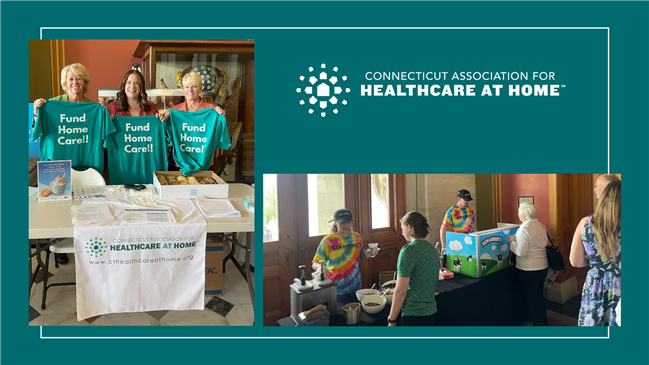 |
||||||||||||||||||||||||||||||||
| April 17, 2025 | ||||||||||||||||||||||||||||||||
Source: CT News Junkie, April 10, 2025
The debate over Connecticut’s fiscal guardrails has resurfaced in recent weeks as Democratic leaders, advocates, and community organizations call for a declaration of fiscal emergency in response to rising state-level needs and looming federal funding cuts.
At the center of the conversation are growing concerns that the current budget framework — designed to stabilize the state’s finances — may now be limiting Connecticut’s ability to respond to unmet needs in areas such as education, healthcare, housing, and social services.
The renewed attention comes amid proposed federal cuts under the Trump administration, with Connecticut potentially losing up to $1 billion in funding for schools, health care, and other essential services.
Source: CT News Junkie, April 10, 2025
Plaintiffs and disability advocates announced Thursday morning at the Hartford Judicial District Courthouse that they are launching a lawsuit against the state of Connecticut to increase the income and asset limits for the state’s Husky Medicaid program.
“Today we’re announcing a new lawsuit filed this morning against the Department of Social Services over the failure of the governor and the legislature to address ongoing financial eligibility discrimination against people with disabilities in the state’s Medicaid program, in violation of the state’s equal protection constitutional provision, which expressly prohibits discrimination on the basis of physical or mental disability,” Sheldon Toubman, litigation attorney for Disability Rights Connecticut and lawyer for the plaintiffs, stated.
Source: The Alliance, April 11, 2025
(Alexandria VA, and Washington, DC) — The National Alliance for Care at Home (the Alliance) issued the following statement today in response to the Centers for Medicare & Medicaid Services (CMS) Fiscal Year (FY) 2026 Hospice Wage Index proposed rule, which proposes payment and regulatory updates under the Medicare hospice benefit.
The proposed 2.4% payment update fails to adequately address the mounting financial pressures facing hospices nationwide. With escalating operational costs driven by inflation, workforce shortages, and rising expenses for supplies and services, the proposed payment increase would threaten the ability of hospices to sustainably provide quality end-of-life care.
“The proposed payment update for FY 2026 falls short of what is needed to sustain high-quality hospice care,” said Dr. Steve Landers, CEO of the Alliance. “Without meaningful adjustments, hospices across the country will face serious challenges—jeopardizing access to care for terminally ill patients and placing added strain on families already facing the unimaginable. CMS must act to protect this vital benefit and ensure that every American can receive compassionate, dignified care at the end of life.”
Source: Alliance Daily, April 15, 2025
HIGHLIGHTS:
On April 1, 2025, the “Workplace Violence Prevention for Health Care and Social Service Workers Act” was reintroduced in Congress. If passed, this bill would have significant implications for providers across the care continuum – including home care, home health, and hospice organizations.
Who Is Covered? The bill applies broadly to employers in health care and social services. This includes:
Importantly, the bill’s protections extend to all settings where care is delivered – not just hospitals or clinics. That means homes, assisted living communities, and other community-based settings are included.
Source: CT Mirror, April 8, 2025
Connecticut’s Office of Health Strategy approved a merger between Northwell Health, a large New York-based health system, and Nuvance Health, which owns Danbury, Norwalk, Sharon and New Milford hospitals in Connecticut, as well as three hospitals in New York, according to a Tuesday announcement by the agency.
The two systems now have to complete the step of formally joining the entities together under the Northwell Health banner, a spokesperson for Nuvance Health said.
Source: Alliance Daily, April 10, 2025
HIGHLIGHTS:
A large bipartisan group of Senators has re-introduced the CONNECT (Creating Opportunities Now for Necessary and Effective Care Technologies) for Health Act, which would expand coverage of telehealth services through Medicare, make COVID-19 telehealth flexibilities permanent, improve health outcomes, and make it easier for patients to connect with their doctors. Current flexibilities are set to expire on September 30 unless Congress extends them.
A bipartisan group of 60 senators has co-sponsored the new iteration of the legislation, led by Senators Brian Schatz (D-HI), Roger Wicker (R-MS), Mark Warner (D-VA), Cindy Hyde-Smith (R-MS), John Barrasso (R-WY), and Peter Welch (D-VT).
Source: Alliance Daily, April 9, 2025
HIGHLIGHTS
Why this matters for providers:
A new bill introduced in the U.S. House of Representatives could reverse a significant change to labor laws that has affected home care agencies for nearly a decade. The proposed legislation, H.R. 2304, aims to reinstate the exemption for overtime and minimum wage protections for live-in caregivers and workers providing companionship services, including those employed by third-party agencies.
Rep. Mary Miller (R-IL) introduced the bill, titled the “Ensuring Access to Affordable and Quality Home Care for Seniors and People with Disabilities Act,” on March 24, 2025. This legislation seeks to address issues created by the 2013 Department of Labor (DOL) rule change, which limited the applicability of the companionship exemption for home care workers.
Source: CNN, April 8, 2025
Need another reason to prioritize your sleep? Not spending enough time in the two deep stages of sleep — slow-wave and rapid eye movement, or REM, sleep — may hasten the deterioration of parts of the brain associated with Alzheimer’s disease, a new study found.
Deficits in slow-wave and REM sleep appear to shrink parts of the brain known to be early indicators of cognitive deterioration and Alzheimer’s disease, said lead study author Gawon Cho, a postdoctoral associate in internal medicine at the Yale School of Medicine in New Haven, Connecticut.
|
||||||||||||||||||||||||||||||||
| Past Issues | Subscribe | cthealthcareathome.org | Advertise with Us | ||||||||||||||||||||||||||||||||






